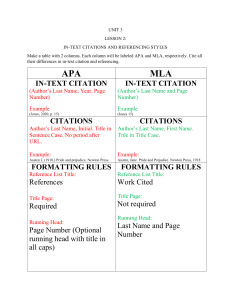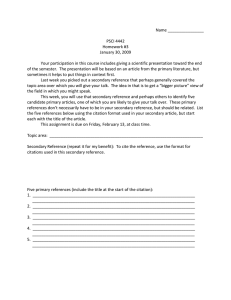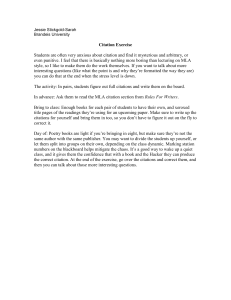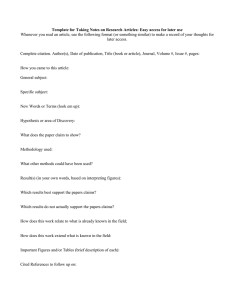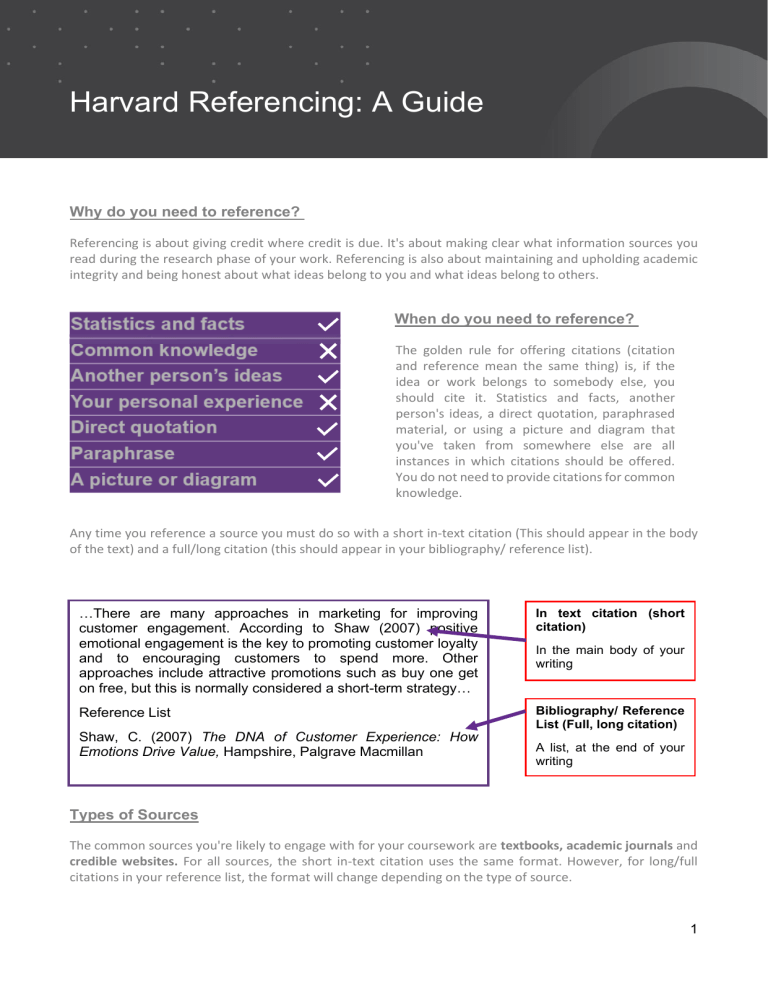
Harvard Referencing: A Guide Why do you need to reference? Referencing is about giving credit where credit is due. It's about making clear what information sources you read during the research phase of your work. Referencing is also about maintaining and upholding academic integrity and being honest about what ideas belong to you and what ideas belong to others. When do you need to reference? The golden rule for offering citations (citation and reference mean the same thing) is, if the idea or work belongs to somebody else, you should cite it. Statistics and facts, another person's ideas, a direct quotation, paraphrased material, or using a picture and diagram that you've taken from somewhere else are all instances in which citations should be offered. You do not need to provide citations for common knowledge. Any time you reference a source you must do so with a short in-text citation (This should appear in the body of the text) and a full/long citation (this should appear in your bibliography/ reference list). …There are many approaches in marketing for improving customer engagement. According to Shaw (2007) positive emotional engagement is the key to promoting customer loyalty and to encouraging customers to spend more. Other approaches include attractive promotions such as buy one get on free, but this is normally considered a short-term strategy… In text citation (short citation) Reference List Bibliography/ Reference List (Full, long citation) Shaw, C. (2007) The DNA of Customer Experience: How Emotions Drive Value, Hampshire, Palgrave Macmillan In the main body of your writing A list, at the end of your writing Types of Sources The common sources you're likely to engage with for your coursework are textbooks, academic journals and credible websites. For all sources, the short in-text citation uses the same format. However, for long/full citations in your reference list, the format will change depending on the type of source. 1 Short In-Text Citations Short in-text citations must always include the author’s surname and the year of publication. In-text citations appear in brackets and a comma appears between the surname and the date of publication. For example: (Smith, 2021). The short in-text citation usually appears at the end of a sentence and is followed by a full-stop. If you are referencing a direct quotation, it is good practice to include the page number after the date of publication. For example: (Smith, 2021, p.35). Long / Full Citations For long/full citations in your reference list, the format will change depending on the type of source. Books The information required for referencing a book can be found on the publication page of the book (usually the second or third page). You can also find this information on the library website. Author Surname, Initials. (Year of Publication) Book Title. Place of Publication, Publisher A full citation for a book looks like this: Surname Initial Year Book Title Shaw, C. (2007) The DNA of customer Experience: How Emotions Drive Value, Hampshire, Palgrave Macmillan. Publisher Place of Publication Journal Articles The information for referencing a journal article can usually be found on the first page of the article. You can also find this information on the library website. Author Surname, Initials. (Year of Publication) Title of Article. Journal Title. Volume (Issue), page numbers A full citation for a journal article looks like this: Surname Initial Year Article Title Al-Esia, Z. & Skok, W, (2014) Arab Knowledge Sharing in a Multicultural Workforce: A Dual Case Study in the UAE. Arab Journal of Business Management Review, 4(4), pp.1-10. Journal Title Volume (Issue) Page Number(s) Websites The information for referencing a web page can be found on the website. Author (Year published on website) Title of Web Page. [Online] Available at: URL Address [Date Accessed: Day Month Year] A full citation for a website looks like this: Author Year Article Title BBC (2020) Bank of England Leaves Rates on Hold Amid Brexit Uncertainty. [Online] Available at: http://www.bbc.co.uk/news/business-45508563 [Date Accessed: 22/Oct/20]. URL Address Date Accessed
